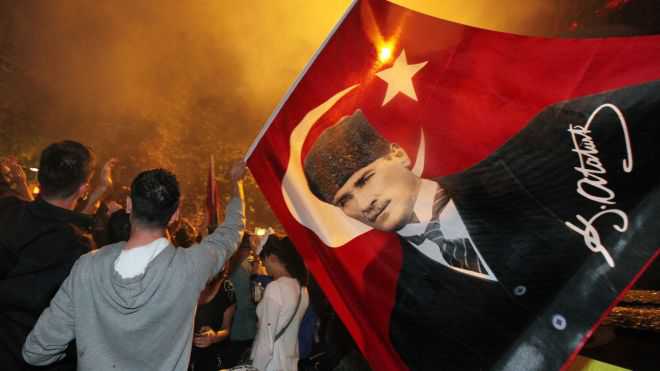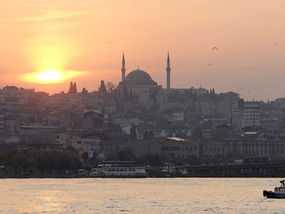Posted by: Marlene Laruelle <marlenelaruelle@yahoo.com>
Marlène Laruelle.
Russian Eurasianism: An Ideology of Empire
Washington, D.C., Woodrow Wilson Press/Johns Hopkins University Press,
2008, 288 p.
Since the dissolution of the Soviet Union, Russia has been
marginalized at the edge of a Western-dominated political and economic
system. In recent years, however, leading Russian figures, including
former president Vladimir Putin, have begun to stress a geopolitics
that puts Russia at the center of a number of axes: European-Asian,
Christian-Muslim-Buddhist, Mediterranean-Indian, Slavic-Turkic, and so
on. This volume examines the political presuppositions and expanding
intellectual impact of Eurasianism, a movement promoting an ideology
of Russian-Asian greatness, which has begun to take hold throughout
Russia, Kazakhstan, and Turkey. Eurasianism purports to tell Russians
what is unalterably important about them and why it can only be
expressed in an empire. Using a wide range of sources, Marl? Laruelle
discusses the impact of the ideology of Eurasianism on geopolitics,
interior policy, foreign policy, and culturalist philosophy.
Marlène Laruelle is currently a research fellow at the Central Asia
and Caucasus Institute of the Paul H. Nitze School of Advanced
International Studies at the Johns Hopkins University. She has been a
postdoctoral fellow at the French Institute for Central Asia Studies
in Tashkent and a fellow at the Woodrow Wilson International Center
for Scholars. In Paris, she is an associate scholar at the French
Center for Russian, Caucasian, and East-European Studies at the School
of Advanced Social Sciences Studies.
Contents:
Introduction: Eurasianism – Marginal or Mainstream in Contemporary Russia?
The Historical Roots of the Eurasianist Idea
Neo-Eurasianism and Its Place in Post-Soviet Russia
Marginal or “Mainstream”?
Premises of This Study
1. Early Eurasianism, 19201930
The Life and Death of a Current of Thought
A Philosophy of Politics
A Geographic Ideology
An Ambiguous Orientalism
Conclusions
2. Lev Gumilev’s A Theory of Ethnicity?
>From Dissidence to Public Endorsement:
An Atypical Biography
“The Last Eurasianist”?
Gumilev’s Episteme: Subjecting the Humanities to the Natural Sciences
Theories of the Ethnos or Naturalistic Determinism
The Complex History of the Eurasian Totality
Xenophobia, Mixophobia, and Anti-Semitism
Gumilev, Russian Nationalism, and Soviet Ethnology
Conclusions
3. Aleksandr Panarin: Philosophy of History and the Revival of Culturalism
Is There a Unified Neo-Eurasianist Theory?
>From Liberalism to Conservatism: Panarin’s Intellectual Biography
“Civilizationism” and “Postmodernism”
Rehabilitating Empire: “Civilizational” Pluralism and Ecumenical Theocracy
Highlighting Russia’s “Internal East”
Conclusions
4. Aleksandr Dugin: A Russian Version of the European Radical Right?
Dugin’s Social Trajectory and Its Significance
A Russian Version of Antiglobalism: Dugin’s Geopolitical Theories
Traditionalism as the Foundation of Dugins Thought
The Russian Proponent of the New Right?
Fascism, Conservative Revolution, and National Bolshevism
A Veiled Anti-Semitism
Ethno-Differentialism and the Idea of Russian Distinctiveness
Conclusions
5. The View from “Within”: Non-Russian Neo-Eurasianism and Islam
The Emergence of Muslim Eurasianist Political Parties
The Eurasianist Games of the Russian Muftiates
Tatarstan: The Pragmatic Eurasianism of Russia’s “Ethnic” Regions
Conclusions
6. Neo-Eurasianism in Kazakhstan and Turkey
Kazakhstan: Eurasianism in Power
The Turkish Case: On the Confusion between Turkism, Pan-Turkism, and
Eurasianism
Conclusion: The Evolution of the Eurasian(ist) Idea in the Twentieth Century
The Unity of Eurasianism
Organicism at the Service of Authoritarianism: “Revolution” or “Conservatism”?
Nationalism: Veiled or Openly Espoused: The Cultural Racism of Eurasianism
Science, Political Movement, or Think Tank?
Is Eurasianism Relevant to Explanations of Contemporary Geopolitical Change?
Psychological Compensation or Part of a Global Phenomenon
Notes
Bibliography
Index





